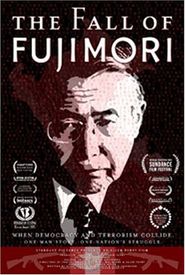Alberto Kenya Fujimori, a polarizing figure, held the esteemed office of President of Peru for a tenure spanning from July 28th, 1990 to November 17th, 2000. Despite being a subject of intense scrutiny, Fujimori's presidency is often credited with successfully eradicating the scourge of terrorism that had long plagued Peru, as well as restoring the nation's macroeconomic stability.
However, his methods have been met with widespread criticism, with many accusing him of authoritarian tendencies and egregious human rights violations. The controversy surrounding his presidency has only intensified in recent years, with Fujimori facing prosecution for crimes against humanity in 2008, allegedly committed during his time in office.
Interestingly, despite the overwhelming evidence against him, a significant majority of Peruvians polled at the time expressed approval for Fujimori's leadership during his presidency, with a staggering two-thirds of respondents voicing their support for his administration. This dichotomy highlights the complex and multifaceted nature of Fujimori's legacy, leaving many to ponder the true extent of his impact on Peruvian history.
























